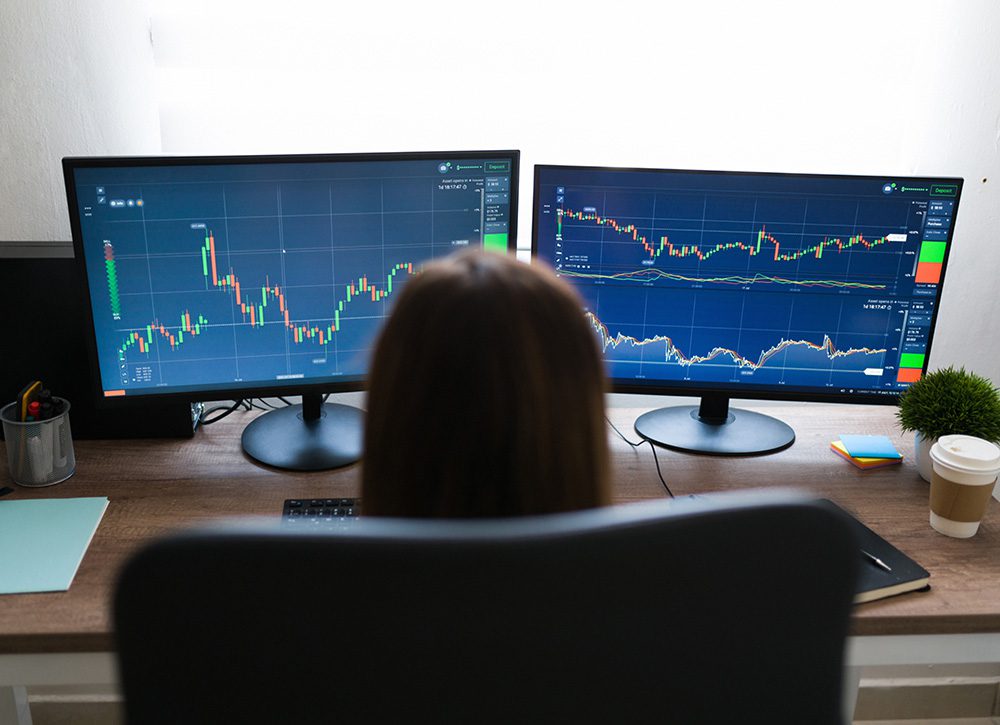A new study is the first to document how removing commission fees on trading platforms improves returns for the average trader.

The advent of no-fee trading on platforms such as Robinhood has helped fuel an explosion in retail investing—and raised concerns that novices would be tempted to trade too often and would lose more money.
New research co-authored by Berkeley Haas assistant professor Omri Even-Tov shows this fear may be exaggerated: While average investors trade more when fees are removed, they also earn more.
“There is a lot of debate about whether more activity among retail traders will harm their performance, and we show that portfolios don’t underperform just because of greater activity,” Even-Tov says. “In fact, net performance improves by about 11% annually, and this improvement is driven by savings from the removal of fees rather than changes in the returns of trades.”
In a new working paper, co-authored by Berkeley Haas doctoral student Kimberlyn George and professors Shimon Kogan from the University of Pennsylvania and Eric So from MIT, the researchers took advantage of a natural experiment by international trading platform eToro, which dropped fees on certain trades in different countries at different times over the past several years. The research also concluded that individuals craft more diverse portfolios when trading is free.
Boom in retail trading
The popularity of retail investor trading has skyrocketed in recent years. In 2020, more than 10 million Americans opened a new brokerage account. In the month of January 2021, six million more downloaded a financial trading app. There is, according to Deloitte, “an emerging class of individual retail investors” that now accounts for approximately 20% of all trading volume in U.S. stock and options.
A confluence of factors is behind these numbers, from accessibility through smartphones to stay-at-home orders during the pandemic. But central to this growth is the introduction of zero-commission trades, in which startups like Robinhood have done away with the longstanding convention of charging a fee for each trade.
“They’ve found other ways to support their operations, and now regulators are looking at whether or not these new methods need to be reined in,” says Berkeley Haas assistant professor Omri Even-Tov. “But what happens if we reintroduce commission fees? Nobody has an answer to that question.”
No fees means more trading and better performance
The trading platform eToro’s staggered removal of trading fees in different countries allowed the researchers to compare investors’ behavior before and after fees were gone. Even-Tov and his co-authors looked at these patterns for over 40,000 investors between October 2018 and November 2019.
The research design proved particularly powerful as it cut across three different dimensions of trading behavior. First, the researchers could look at how individuals changed their own behavior (if at all) when trading fees were removed. Second, they could compare trading behavior between individuals in countries with and without fees. And third, they could compare how individuals traded stocks that had no commission (non-leveraged trades) as opposed to those that continued to have a commission (leveraged and short sale trades).
Even-Tov and his colleagues found, first and most intuitively, that the removal of fees increased trading frequency by an average of about 30%. Having no fees also drew more people to the eToro platform: New users grew by 172% in countries without fees and only 18% in countries where fees remained in place. Interestingly, the removal of fees also led people to hold significantly more diverse portfolios. Most important, taking away fees improved net performance among traders.
The regulatory question
These results come at time when the U.S. Securities and Exchange Commission is considering whether to regulate one of the main ways that retail brokerage firms make revenue outside of commission, a process called payment for order flow. Though the new study looked at markets outside the U.S., Even-Tov and his colleagues ran an analysis to demonstrate that the kind of retail trading conducted by the subjects of their research maps neatly onto the kind of trading taking place on American platforms.
As a result, one of the implications from this work is that while stricter scrutiny of payment for order flow may be important for several reasons, regulatory bodies should be wary of pushing online trading platforms back toward a commission model when putting new policies in place.
“There is a common belief in this idea that if people trade more they will lose more, and that getting rid of fees encourages all kinds of irresponsible trading behavior,” Even-Tov says. “In fact, we found that a reduction in fees resulted in net savings, among other positive outcomes. So the SEC should tread carefully when it looks to monitor how retail trading platforms charge their users.”
Read the paper:
Fee the People: Retail Investor Behavior and Trading Commission Fees
By Omri Even-Tov, Kimberlyn George, Shimon Kogan, and Eric C. So
June 2023